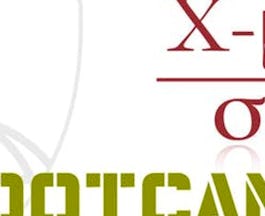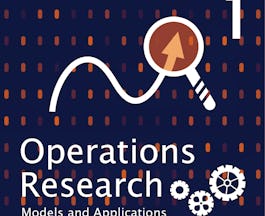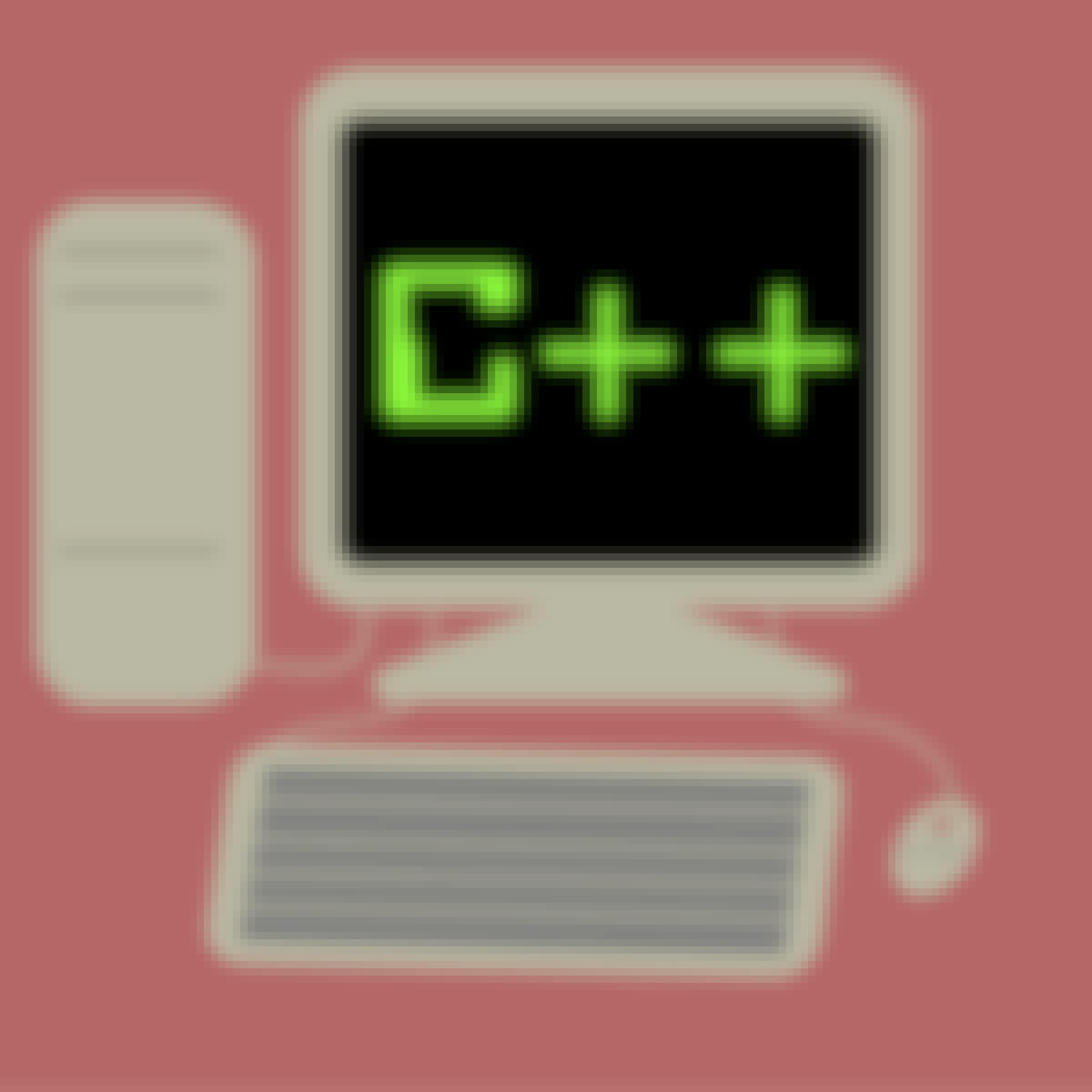Filter by
The language used throughout the course, in both instruction and assessments.
Results for "mathematical theory "

Johns Hopkins University
Skills you'll gain: Statistical Hypothesis Testing, Sampling (Statistics), Regression Analysis, Bayesian Statistics, Statistical Analysis, Probability & Statistics, Statistical Inference, Statistical Methods, Statistical Modeling, Linear Algebra, Probability, R Programming, Biostatistics, Data Analysis, Data Science, Probability Distribution, Mathematical Modeling, Data Modeling, Applied Mathematics, Predictive Modeling
 Status: Free
Status: FreeNational Taiwan University
Skills you'll gain: Operations Research, Mathematical Modeling, Process Optimization, Applied Mathematics, Business Modeling, Industrial Engineering, Operations Management, Inventory Control, Resource Allocation, Business Analytics, Production Planning, Microsoft Excel, Scheduling, Linear Algebra, Decision Making, Portfolio Management, Complex Problem Solving

Skills you'll gain: Figma (Design Software), Usability Testing, Design Reviews, Mockups, User Interface and User Experience (UI/UX) Design, User Experience Design, Prototyping, User Centered Design, User Interface (UI) Design, Design Elements And Principles, Typography, Color Theory
 Status: Free
Status: FreeThe Museum of Modern Art
Skills you'll gain: Design Elements And Principles, Aesthetics, Color Theory, Liberal Arts
 Status: Free
Status: FreeCalifornia Institute of the Arts
Skills you'll gain: Writing
 Status: Free
Status: FreeUniversitat Autònoma de Barcelona
Skills you'll gain: Trigonometry, Integral Calculus, Calculus, Arithmetic, Advanced Mathematics, Algebra, Mathematical Theory & Analysis, Applied Mathematics, Graphing, Derivatives
 Status: Free
Status: FreeTecnológico de Monterrey
Skills you'll gain: Mathematics, Algebra, Calculus
 Status: Free
Status: FreeNorthwestern University
Skills you'll gain: Image Analysis, Digital Communications, Computer Vision, Visualization (Computer Graphics), Electrical Engineering, Matlab, Color Theory, Applied Mathematics, Statistical Process Controls

University of California, Davis
Skills you'll gain: Persona Development, Search Engine Optimization, Web Analytics and SEO, Target Audience, Google Analytics, Digital Marketing, User Research, Content Strategy, Web Content, Marketing Strategy and Techniques, Social Media Strategy

Stanford University
Skills you'll gain: Bayesian Network, Applied Machine Learning, Graph Theory, Probability Distribution, Statistical Modeling, Markov Model, Statistical Machine Learning, Decision Support Systems, Machine Learning, Network Model, Probability & Statistics, Network Analysis, Machine Learning Methods, Statistical Inference, Sampling (Statistics), Statistical Methods, Natural Language Processing, Algorithms, Machine Learning Algorithms

Michigan State University
Skills you'll gain: Design Elements And Principles, Peer Review, Graphic and Visual Design, Post-Production, Project Planning, Color Theory, Digital Design, Constructive Feedback, File Management, Adobe Creative Cloud, Creativity, Creative Design, Project Management, Storytelling, Content Creation, Aesthetics, Electronic Media, Editing, Liberal Arts, Writing

University of California, Santa Cruz
Skills you'll gain: C++ (Programming Language), Object Oriented Programming (OOP), Algorithms, C (Programming Language), Programming Principles, Computer Programming, Graph Theory, Data Structures
In summary, here are 10 of our most popular mathematical theory courses
- Advanced Statistics for Data Science: Johns Hopkins University
- Operations Research (1): Models and Applications: National Taiwan University
- Create High-Fidelity Designs and Prototypes in Figma: Google
- In the Studio: Postwar Abstract Painting: The Museum of Modern Art
- Approaching Music Theory: Melodic Forms and Simple Harmony: California Institute of the Arts
- Pre-Calculus: Universitat Autònoma de Barcelona
- 3.- El Cálculo - Modelo Cúbico: Tecnológico de Monterrey
- Fundamentals of Digital Image and Video Processing: Northwestern University
- Introduction to Google SEO: University of California, Davis
- Probabilistic Graphical Models: Stanford University










